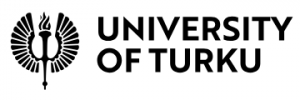Turku Intersectoral Excellence Scheme (TIES)

TIES is a ground-breaking new fellowship scheme based at UTU Turku Institute for Advanced Studies (TIAS). TIAS invites applications for up to eight (8) TIES Fellowship positions. TIES Fellows will be appointed for three years from 1 September 2023 and will undertake a secondment of two to six months in an organization outside higher education.
Applications are open November 15, 2022 – January 9, 2023
---
TIES is a ground-breaking new fellowship scheme based within TIAS in partnership with Turku Business Region. It combines the Institute for Advanced Studies (IAS) model of elite, bottom-up postdoctoral research with an intersectoral approach wherein the appointed Fellows will be expected to undertake secondments of between two and six months with organisations external to higher education. By supporting these secondments TIES’ ambition is to develop a cohort of expert researchers able to spot and develop opportunities across and beyond higher education.
In July 2022 TIES received €1.14M in funding from European Union’s Marie Skłodowska-Curie Actions (MSCA) COFUND programme, which was matched by the University of Turku. We gratefully acknowledge the receipt of this funding.
TIES is located within the University’s Turku Institute for Advanced Studies (TIAS), a research collegium which supports the bottom-up development of excellent early- and mid- career stage academics through the provision of three years of funding, enabling them to carry out self-designed research projects.
TIAS invites applications for up to eight (8) TIES Fellowship positions for a three-year period starting from 1 September 2023. TIES Fellows are selected via an international call for applications and TIAS welcomes applications from projects based in any discipline within its five constituent faculties (Economics, Education, Humanities, Law and Social Sciences). Selection of successful applicants will be on the basis of academic excellence.
TIES has been developed in order to enhance TIAS’ provisions by offering a special opportunity for outstanding researchers to undertake a three year research project of their own design which must directly concern at least one non-higher education sector organisation of the applicant’s choosing.
Applicant eligibility
- The TIES programme has been developed in consultation with a number of partners and is designed to give cutting-edge researchers the possibility of conducting research in conjunction with chosen partners located outside of higher education. Successful applicants will need to be committed to spending between two and six months on secondment with an external organisation as part of a research and/or training project which may be situated any area covered by TIAS’ constituent faculties. Applicants are asked to suggest secondment partners as part of the applications process (see below). Applicants must not have worked for their proposed secondment organisation for more than 12 months in the past 36 months immediately before the call deadline.
- TIES Fellows must be within eight (8) years of applicants having passed their PhD. Applicants are also expected to have attained other academic achievements.
Applicants must have completed their doctoral degree by the call deadline. Thus they must have gained their doctoral degree a maximum of eight years before the call deadline, 9 January 2023. This date should be taken as being the date at which all work for the PhD is successfully concluded, rather than the date of formal graduation. In cases where the PhD has been successfully completed but the degree certificate has not yet been issued, applicants should provide confirmation from the University where the PhD was undertaken that the PhD has been successfully completed and that no additional work is required. Please note that by the time the employment contract is signed, the doctoral certificate must be delivered to the University.
Only for special reasons, such as maternity, paternity or parental leave, military service or non-military service, or a long illness may more than eight years have passed since the successful completion of the degree. Applicants who wish to plead special reasons should highlight this in their curriculum vitae.
- Applicants must meet the MSCA mobility rule that they must not have resided or carried out their main activity (work, studies, etc.) in Finland for more than 12 months in the 36 months immediately before the call deadline. Applicants wishing to claim exemption to these rules because of the COVID-19 pandemic should note this in their CV and commit to providing documentary evidence of this prior to any offer of employment.
- All relevant documentation (see below) must be submitted on time.
Any application which fails to meet these criteria without justification will be deemed to be ineligible and will not be sent on to external review.
Salary
The salaries of TIES Fellows are determined within the university salary system for teaching and research personnel. The salary for a TIES Fellow corresponds to a requirement level 6 and the pre-estimated personal performance percentage of 17 % (current gross salary 4153 € per month), and is subject to yearly increases.
Tasks of TIES Fellows
The positions are located at one of the campuses of the University of Turku and successful candidates are required to be resident in Finland. During their TIES Fellowship, Fellows may spend up to nine months working outside Finland, generally for a maximum of three months per calendar year. Such work must be related to their TIES project and must be approved by the TIAS Director.
The main task of TIES Fellows is to carry out an internationally excellent research project over a three year period, during which the results of the project should be disseminated in a number of ways, such as books, book chapters, peer reviewed articles, newspaper articles, conference papers, public dissemination events etc. As part of the MSCA Cofund programme, TIES is committed to the principles of Open Science, in line with the FAIR (Findable, Accessible, Interoperable and Reusable) principle. Successful candidates will be required to adhere to these principles (see below for University and MSCA policies on this).
In addition to undertaking their own research project, including at least one mandatory secondment, TIES Fellows are also required to contribute to TIAS’ intellectual life via such things as attending and presenting at TIAS meetings, organising TIAS events and cross disciplinary working with their co-Fellows. They must also undertake a secondment with an organisation external to higher education for between two and six months.
In their motivation letter (see detailed instructions for application documents), applicants should state how their work supplements existing work at the University, identifying both the department within which they wish to be located and relevant areas of the department’s research interests which align with their own. Please note that it is not necessary for applicants to contact departments or staff members. Applicants should outline why they particularly wish to be part of the TIES programme and briefly outline any non-research-oriented training needs (transferable skills) which they have and how they propose to address these during the fellowship.
Applicants should also demonstrate how their work relates to one or more of the strategic research and education profiles of the University of Turku for 2021–30: 1) Biodiversity and sustainability 2) Future technologies and digital society 3) Cultural memory and social change 4) Children, young people and learning 5) Health, diagnostics and drug development 6) Sea and maritime studies. Successful candidates are requested to demonstrate engagement in international academic networks and must provide evidence of their ability to work in a research environment of high international standard.
Applicants should be aware that they are applying to an interdisciplinary research Institute and should therefore be committed to interdisciplinary working. Such working includes an obligation to attend regular TIAS meetings and events and to make contributions to the academic and social life of the Institute. In addition to TIAS meetings, Fellows are expected to attend the campus regularly. TIES positions are full time and require 1612 working hours per annum.
All TIAS Fellows have the opportunity to contribute to teaching activities at the University of Turku. Such contributions will make up a maximum of 5 % of a Fellow’s annual work load of 1612 hours. In addition, they may devote another 5 % of their total work time to other academic and administration duties. Once in situ TIES Fellows will also be required to develop a Personal Career Development Plan (PCDP) in consultation with their academic and secondment supervisors as well as the academic mentor which will be provided to them.
TIES applicants are expected to abide by the University of Turku's policies on equal opportunities and open science.
Secondment
TIES is based on principles of knowledge exchange and a vital part of the programme is a secondment to an external organisation for a total period of between two and six months. Applicants may themselves select the organisation to which they wish to be seconded. This may include one of the University’s partners, list of which can be found on the TIES website. Applicants are free to propose a secondment within any relevant organisation. We particularly welcome applications from candidates whose research interests align with those of our partner, the Turku Business Region.
Applicants may contact proposed secondment organisations themselves and can refer to the information on the TIES programme for external organisations on the TIES website. Secondment organisations can be inside or outside Finland. TIES Fellows will continue to receive their full University salary during their secondment.
Please see further information on the secondment.
Applying
Applications must be submitted via University of Turku’s electronic application form:
The application deadline is 9 January 2023 at 23.59 (Finnish time, GMT +2). Late applications cannot be submitted and applications cannot be completed after the application deadline.
Please note that once the application has been submitted the applicant can continue to make further adjustments to the application up until the end of application period. We strongly recommended that the application is completed as early as possible.
In the application form applicants are asked to choose the department/unit within which they wish their research to be located. Please choose from the list further down on this page.
...


